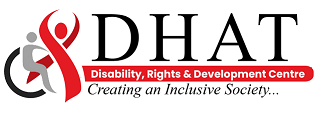Our story
How we build the perfect team
The Disability Rights and Development Centre – DHAT also offers and plays a faith-based role, to promote the welfare and livelihoods of families and communities against the backdrop of the triple crisis of disease, conflict and poverty. The goals, objectives and strategies of the Disability Rights and Development Centre – DHAT are aimed at strengthening family cohesion and securing family livelihoods through empowering different members of the family with various skills that are necessary to survive and to thrive. The main focus is to see thriving families who celebrate God’s plan for family, leading to shared value in their communities. As the organization works with different families, special attention is given to women, Children and young adults particularly those that are heading their families and, children that have been made vulnerable through various factors that include poverty disease or conflict.
The organization believes in a collaborative approach and works with various entities in the different communities that include churches and other faith-based organizations, community-based organizations and various government departments and stakeholders.
Our Mission
To assess the social, cultural, economic and political participation, representation and empowerment of Persons With Disabilities in Zambian Communities in six provinces.
- To determine the level of participation of men and women with disabilities (MWDs) in social, health and economic development activities
- To catalogue areas of abuse and discrimination of PWDs in various areas
- To determine levels of inclusion of PWDs in education and other social services
- To determine the availability of HIV and AIDS policies in DPOs
Our Values
To advocate, initiate and facilitate the development of disability sensitive HIV/AIDS policies and legislation in SADC region (policy and legislation reviews to ascertain relevance, regional consultative and lesson sharing workshops, participate in regional and international fora to influence opinion leaders and stakeholders)
- To advocate for domestication and implementation of
Human Rights declarations, conventions and protocols by SADC member states
- Sub granting
- Regional Voice on disability and HIV and AIDS issues (Disability at SADC HIV and AIDS Committee, HIV and AIDS Advisory and Technical Committee, Think Tanks)
- e) Resource centre (Dissemination, development of IEC materials, database)
- To lobby for government to support Disability and HIV and AIDS Programmes
- Research
- Capacity building and technical; support of National networks
- Marketing of National Networks
- Resource mobilisation
- Monitoring and Evaluation (DHAT Work)
Facilitate development, harmonization and review of policies and legislations related to disability, HIV and AIDS interventions




